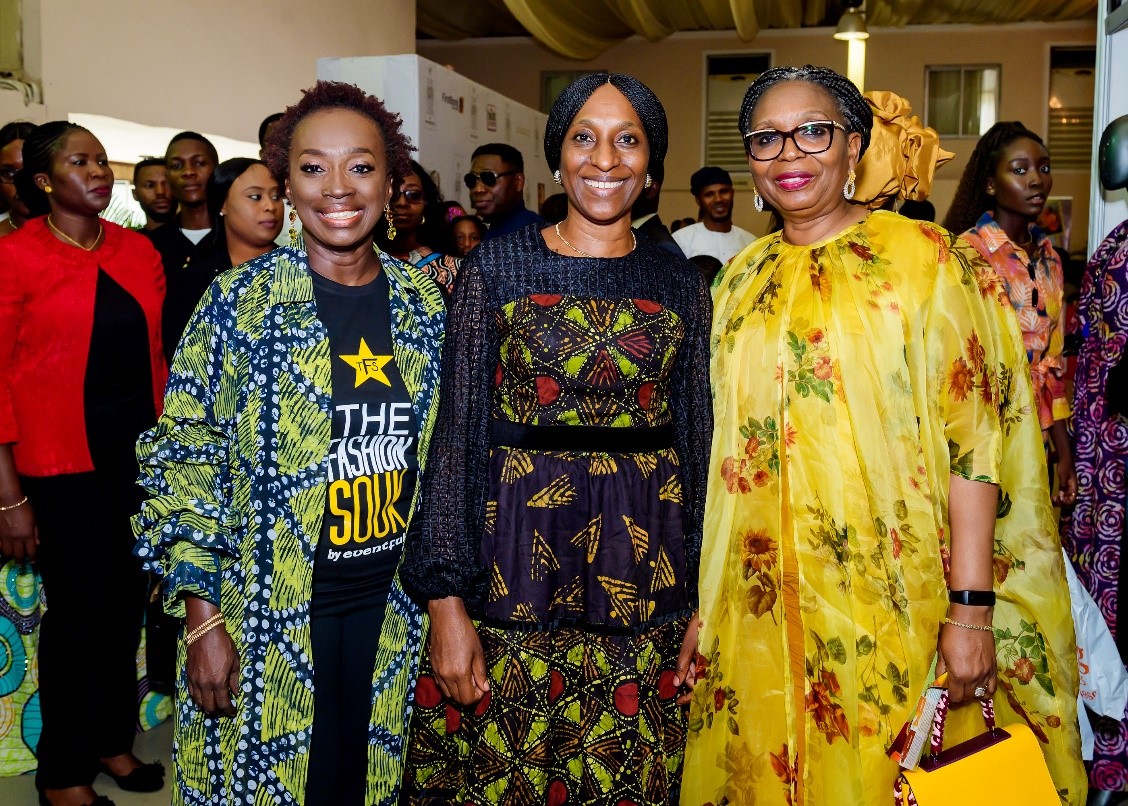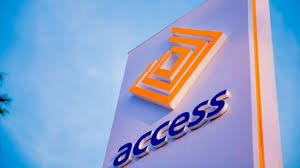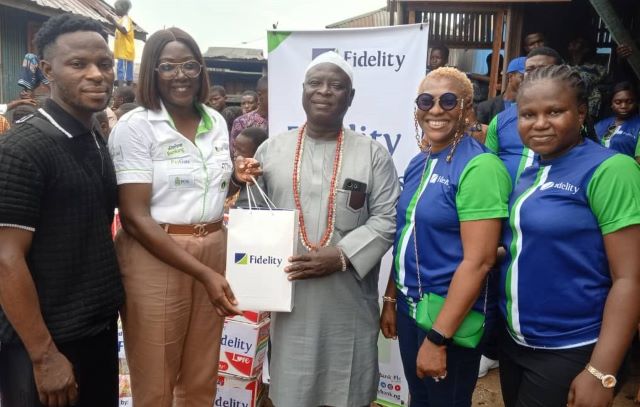Business
FirstBank Partners Eventful to Support SMEs in the Fashion Industry

As part of efforts to provide access to market and provide opportunities for entrepreneurs in the Small Medium Scale Enterprise (SMEs) of the fashion industry, First Bank of Nigeria Limited partnered with Eventful Nigeria Limited on its event, fashion souk, a platform that creates an opportunity for players in the fashion industry to exhibit and sell their wares to the thousands of event participants.
Speaking at the event held in Lagos recently, the Group Head, Marketing and Corporate Communication, First Bank of Nigeria Limited, said the bank has over the years, since its founding, been very supportive of the entrepreneurial space and SMEs, adding that the role of the bank is that of an enabler.
“FirstBank has been involved in every sector of the economy since 1894, so if you think about that there is no sector we have not been involved in, in fact this particular fashion souk, we are the pioneer sponsor and we sponsored it right from when it started.”
Ani-Mumuney explained that the fashion industry over the years has grown incredibly and added that it has helped to grow other businesses.
According to her, “Just like Nigerian music, the fashion industry is still in its infancy. We have great talents and potential in the fashion industry. Let’s consider the developed fashion industry of Italy for instance and the entire value chain of fashion, it tells you that there is a lot to be done. We still need to have fashion zones in core Cities and States, so that within a particular zone, you could have the cutters, button hole creation and others.
“The great thing is that we have a market here, but beyond that is that we could easily become the fashion hub for Africa, especially its export across continents. The fashion industry is diverse and versatile with many roles carried-out by individuals with uniquely different skill-set. Some persons could focus on finishing; some could focus on sketching, garment making and other areas. Indeed, Nigeria are fashion freaks, with a large and diverse market.
Also at the event was Nollywood actor and producer Kunle Afolayan whom had his clothing line Ire Clothing, displayed. Afolayan, the Chief Executive Officer of Ire Clothing said he started the clothing line with just the Kunle Kembe, and presently, it has expanded to about five, six collections.
He also stated that what inspired Ire clothing is because of his love for arts and anything that deals with the Nigerian cultural heritage and helps to document culture, “so with Ire clothing, we use Africa fabrics, Anakara, Adire and others.”
Afoloyan explained that he has modified the old Yoruba Kembe style to something that is now pop culture so that the younger generation can also wear it, adding that there are T-shirts and Kunle’s Dansiki which is a bit smaller than the traditional Dansiki, and face caps.
According to him, “The brand story we are trying to tell is that we want people to embrace their own culture and tradition; use it to their advantage and use it to the world. I think the fashion industry is striving and it’s been here for a very longtime and it is doing better because a lot of our people are exporting our clothing abroad.”
In his remarks, veteran comedian, Atunyota Akpobome, popularly known as Ali baba, said the fashion souk is a platform of opportunities and a collage of business ideas, providing a platform for people to network and express business innovations.
According to Ali baba, “To expand the frontiers of the fashion industry, there is need for exposure and the social media is helping a great deal to improve the employment needs of Nigerians. Once the employment statistics increases there will be higher purchasing power and people will tend to invest and spend more in fashion. In a country of about 200 million people, one should be able to do one million sales in months. But I think we will get there someday. We need to grow our textile industry and revamp the textile companies, which implies that we have to revive the production of cotton so that players in the industry can have access to raw materials, thereby cutting down production cost.”
Also speaking at the event, popular television presenter and model, Uti Nwachukwu, expressed satisfaction with the event, commending the organisers for creating an avenue to convene fashion vendors under one roof to provide their wares at discounted and affordable rates, while giving customers the opportunities to patronize their brands.
He further stated that the fashion souk gives the vendors an opportunity to showcase what they have to sell and creates opportunity for them to advertise their products.
Nwachukwu added: “A lot of vendors and customers here are happy. It is a give and take situation that works well. The fashion industry in Nigeria is the most underrated industry; there is so much potential, and greatness in the fashion industry.
“We have great designers that will shine in any part of the world. It is a great gesture the bank is making by supporting the industry. I just wish the bank can help these designers to get to international level of exposure. Our designs are wonderful, African prints are in fashion in different parts of the world. Finance and exposure are the key challenges facing the industry, if it is properly addressed, things will work out well.”
Business
Access Bank Launches “DettyFusion” Platform for Seamless Detty December Experience

Access Bank Plc, Nigeria’s largest retail bank, is set to unveil DettyFusion, an innovative all-in-one digital platform designed to help Nigerians at home and in the diaspora seamlessly discover, plan, and enjoy entertainment events during the upcoming Christmas and New Year festive season.
Billed as the first-of-its-kind entertainment aggregator in the country, DettyFusion will serve as a centralized hub where users can explore event calendars, purchase tickets, access exclusive discounts, participate in curated festive experiences, and make safe, seamless payments throughout the holiday period.
Speaking on the forthcoming launch, Access Bank’s Head of Mobility, Ishmael Nwokocha, said the platform was inspired by the bank’s commitment to enhancing customer experience during the highly anticipated Detty December season.
“Every December, Nigerians look forward to moments that bring joy, connection, and unforgettable experiences. The launch of DettyFusion will create a single gateway that makes it easier, safer, and more convenient for customers to enjoy the thrills of Detty December,” Nwokocha stated.
He added that the platform reflects Access Bank’s drive to deliver innovative lifestyle solutions that extend beyond traditional banking services. “DettyFusion brings together key features that meet the needs of today’s digitally active and experience-driven audience,” he said.
With this initiative, Access Bank continues to reinforce its position as a leading lifestyle enabler, supporting Nigeria’s creative sector while empowering customers to enjoy top-tier entertainment during the festive season.
With DettyFusion, Detty December just got smarter, more convenient, and even more rewarding.
Business
How Access Bank is Supporting Women Driving Africa’s Growth Story

Across Africa, women are fast becoming the heartbeat of economic transformation. From bustling open-air markets to high-tech boardrooms, women-led enterprises are redefining what is possible for the continent’s future.
Whether as market traders expanding their reach through digital platforms, tech founders scaling innovations across borders, or artisans turning local crafts into global brands, women’s contributions are now central to Africa’s economic resurgence.
Even as they break new ground, many still face formidable barriers. Access to finance, mentorship, business education, and supportive networks remains limited. Structural issues such as weak property rights, gender bias, and inadequate legal protections often hinder women from securing loans or expanding their businesses.
Consequently, many women-owned ventures remain small, informal, and vulnerable to economic shocks.
Recognising both the promise and the obstacles, Access Bank has positioned itself at the forefront of empowering women across the continent. Recently named Africa’s Best Financier for Female Entrepreneurs by the EMEA Finance Awards, the Bank has earned global recognition for its commitment to inclusion, innovation, and sustainable impact.
At the centre of this effort is the W Initiative, one of Africa’s most comprehensive women-focused banking programmes. Unlike conventional banking, it combines finance with mentorship, training, and community support, acknowledging that true empowerment requires more than access to capital. The initiative meets women wherever they are on their entrepreneurial journey, from start-ups to growing enterprises and corporate leadership.
The W Power Loan offers affordable credit with flexible terms, enabling women to invest in expansion, inventory, or technology. The W Academy provides leadership and business training on financial literacy, marketing, and regulatory compliance, while the W Community connects women to peers, mentors, and role models across industries.
Importantly, these offerings extend beyond urban centres. From microloans sustaining traders in rural markets to leadership programmes developing female executives in multinational firms, Access Bank’s approach is deliberately inclusive. By partnering NGOs, business associations, and government agencies, it reaches women in underserved communities, ensuring participation in Africa’s economic rise.
The results are evident. Thousands of women have accessed credit, training, and networks through the Bank’s initiatives, enabling them to launch and scale businesses, create jobs, and uplift their communities. The ripple effects are far-reaching: increased household income, improved family wellbeing, and greater economic resilience. Women who once faced daunting barriers now serve as role models and change-makers, inspiring others to follow their path.
Studies show that when women thrive, societies prosper. The World Bank and African Development Bank note that empowering women fuels GDP growth, improves health outcomes, and enhances social stability. By directly addressing structural gaps in access to finance and information, Access Bank helps to unlock this transformative potential.
Apart from supporting entrepreneurs, Access Bank promotes gender inclusion within its own organisation. Its leadership pipeline identifies and advances talented women, while mentorship and wellness programmes help female professionals thrive. The Bank also uses public platforms, from conferences to policy dialogues, to share success stories and advocate for gender diversity across sectors.
The EMEA Finance recognition thus goes beyond trophies and titles; it affirms that profitability and purpose can coexist. For Access Bank, supporting women’s advancement is smart economics. By embedding inclusion into its DNA, the Bank is shaping a financial ecosystem that views women as equal partners in progress.
Access Bank’s influence also extends into advocacy. Through forums, roundtables, and research collaborations, the Bank engages policymakers, civil society, and business leaders to identify and dismantle barriers facing women entrepreneurs. Its campaigns amplify women’s voices, spotlighting their achievements and driving conversations around inclusive growth.
Business
Fidelity Bank Spreads Kindness to Makoko Community, Donates Boats, Food Items, Others

In another demonstration of its commitment to corporate social responsibility, leading financial institution, Fidelity Bank Plc, has extended support to residents of the Makoko waterfront community in Lagos with the donation of boats, educational materials, food items and other essential relief items.
The donation was championed by the Achievers Inductees Class of 2025 under the Fidelity Helping Hands Programme (FHHP), the bank’s staff-led CSR initiative where members of staff identify areas of critical interventions in their communities, raise funds and receive matching support from the bank’s management to execute the projects.
Speaking on the donation, Divisional Head, Brand and Communications, Fidelity Bank Plc, Dr. Meksley Nwagboh, reaffirmed the bank’s dedication to supporting communities and fostering sustainable development.
“At Fidelity Bank, we believe that when communities thrive, businesses prosper. Our commitment goes beyond banking, it is about improving lives, supporting education, and creating opportunities for growth. This donation reflects our dedication to nurturing the next generation and contributing to a better, more sustainable future,” He stated.
Expressing appreciation on behalf of the community, the traditional leader of Makoko, Baale Shemede Emmanuel Ajakaekun, commended Fidelity Bank for its compassionate donation.
“We are grateful that Fidelity Bank came down here to support us. May their work continue to flourish, and may God lift them higher. We hope they will not forget us but come back again to support our people,” he said.
Similarly, the Proprietor, Part of Solution Orphanage, Nursery and Primary School, Shemede Taiwo, described the donation as life-changing for the children and residents.
“Many children here struggle to attend school because boats are expensive to build or hire. Fidelity Bank’s donation will make a huge difference in ensuring our children get to school safely and in ensuring the improved welfare of the residents of this community. We truly appreciate this gesture,” Shemede Taiwo said.
Through the Fidelity Helping Hands Programme (FHHP), the bank continues to empower communities across Nigeria by addressing key social issues in education, health, and welfare. The Makoko outreach comes off the back of a similar FHHP outreach to Old People’s Home in Yaba, Lagos, reaffirming Fidelity Bank’s commitment to the sustainable development that begins with genuine care for people and their environment.
Ranked among the best banks in Nigeria, Fidelity Bank Plc is a full-fledged Commercial Deposit Money Bank serving over 9.1 million customers through digital banking channels, its 255 business offices in Nigeria and United Kingdom subsidiary, FidBank UK Limited.
The Bank is a recipient of multiple local and international Awards, including the 2024 Excellence in Digital Transformation & MSME Banking Award by BusinessDay Banks and Financial Institutions (BAFI) Awards; the 2024 Most Innovative Mobile Banking Application award for its Fidelity Mobile App by Global Business Outlook, and the 2024 Most Innovative Investment Banking Service Provider award by Global Brands Magazine. Additionally, the Bank was recognized as the Best Bank for SMEs in Nigeria by the Euromoney Awards for Excellence and as the Export Financing Bank of the Year by the BusinessDay Banks and Financial Institutions (BAFI) Awards.






